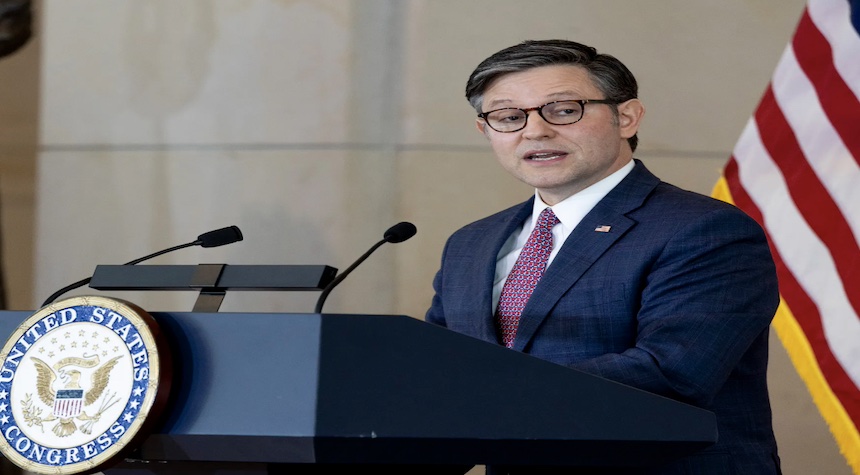The House of Representatives advanced on Friday the Reforming Intelligence and Surveillance Act. This would extend Section 702 under the Foreign Intelligence Surveillance Act. (FISA), which is the United States’ program of warrantless surveillance.
Tensions peaked in the Republican Conference on Wednesday as 19 House Republicans blocked a vote for a procedural motion after former President Donald Trump had instructed them to oppose this bill.
He wrote on Truth Social:
“FISA was used illegally against me and others. They spied on my campaign! DJT”
The revolt on the floor was an embarrassment to Speaker Mike Johnson, R-LA. It prompted legislators to begin negotiations to reauthorize surveillance powers before FISA expires next Friday.
Recent challenges to Johnson’s Leadership, led by Rep. Marjorie Taylor Greene, (R-GA), have raised concerns over his possible removal from the Speakership. This is similar to the circumstances that his predecessor, Rep. Kevin McCarthy, (R CA), was in when he became the first House speaker in history to have been removed, in October. Johnson, before the procedural vote Wednesday, made a last appeal for the passage of the bill, stressing the need to address abuse concerns without completely discontinuing the program.
The debate centers on Section 702 FISA which allows warrantless surveillance abroad of foreigners. Proponents claim that this is essential to combating terrorism but it also leads to the collection of communications between Americans. The critics claim that the broad approach to surveillance can result in the collection of personal data from innocent Americans without their consent, violating their constitutional rights to privacy and due procedure.

Recent revelations about FBI analysts misusing these data have led to calls for tighter oversight. This includes requiring warrants for searches in vast intelligence repositories for Americans’ personal information. The FBI was accused of searching inappropriately for a member’s name, Rep. Darin L. LaHood (R-IL), within foreign surveillance data. A court order issued last year revealed the FBI’s use of the intelligence repository without a warrant against people involved in racial protests in 2020 and in the January 6, 2021 riot at the U.S. Capitol.
After negotiations, the bill was amended to extend FISA’s authorization for two years, instead of five. This appeased some GOP holdouts. Leaders also agreed to vote on a Bill by Rep. Warren Davidson, R-OH that would require a warrant for the government to buy data about U.S. Citizens from data brokers.

A second amendment, scheduled for Friday’s vote, mandates that the government obtain a warrant before reviewing data collected about Americans by Section 702 activities.
The changes and commitments that have been made by the GOP holdouts will allow them to support the reauthorization of the bill on Friday. However, some Republican opponents argue that the revisions are insufficient, particularly the right-wing House Freedom Caucus. The bill’s fate, despite being supported by both the Biden administration and Johnson, is still uncertain.
The final vote, including several amendments proposed, will take place at 11:45 am EDT, on Friday.


